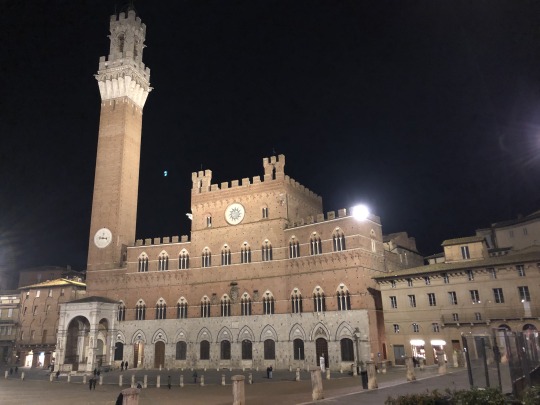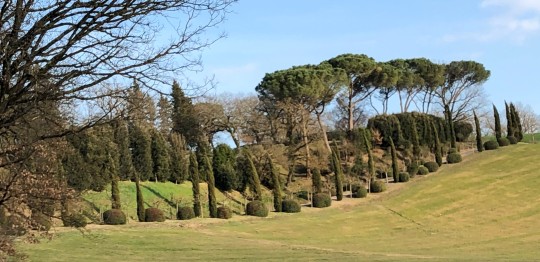#teach Odysseus to knock before entering
Explore tagged Tumblr posts
Text
SPEED AND KISSES
I really like how in the book his strength, his speed, his divine appearance and beauty are described, but cause it is Patroclus who admires all of this and describes it all !
• A very small headcanon is that Patroclus liked to kiss Achilles' feet, in some way praising him for how fast he was. Patroclus also often volunteered to help him take care of the excellent condition of his feet, personally anointing them with oils
Patroclus: *Kisses the protruding ankle bone, looks with tenderness and love at Achilles, who is half-lying down on the skins, resting his elbows on the ground *
Achilles: Paaaat~ (ノ∀\*) *laughs quietly*
Somehow, Odysseus looks into the tent (don't ask, just for fun*): I apologize for the intrusion, but- OH, I get it, it's not the right tiiimeee!-...
Patrochilles: (〃•_•〃)''' SHIT-
#greek mythology#the song of achilles#patrochilles#patroclus#achilles#odysseus#teach Odysseus to knock before entering#Sweet boys#Ody and Dio will definitely be looking at them slyly by the fire#Signs of love
30 notes
·
View notes
Text
Hiking the Francigena Way from Siena to Rome
March 3-12, 2019
“You will find where Odysseus wandered when you find the cobbler who stitched the bag of the winds”
Homer
I'd again been hankering for some sort of expedition to get me away from New York City's urban sprawl. Something that might fit into the St Johns University Spring break where I teach organic chemistry and which would hopefully provide some badly needed sunshine. So in early March, 2019, when I hoped the Tuscan hills would be warming up nicely, I planned to hike the last 180 miles of the Via Francigena from Siena to Rome over ten days – this is an old pilgrims route which officially starts in Canterbury and includes walking-on-water over the English Channel. I would, of course, travel alone, and Camino Ways would ferry my luggage from one small hotel/B&B to the next, so I only had my day pack to carry. I've done the 'carrying everything' and 'pitching a tent in the pouring rain and dark' already – now I could afford to just do a physically challenging hike where I could travel light and have wine, pasta and a warm bed at the end of it. To find my way I would use a combination of way markers and maps (old school and electronic) but did secretly look forward to an occasional wrong turn...

I didn't expect to find God since I've never been of the religious persuasion, probably for a number of reasons. Growing up in an English working-class coal mining area the only religions were hard graft and soccer, accompanied by copious quantities of beer and tobacco. Moral codes, such as treating everyone how you would like to be treated and respecting your elders, were deeply ingrained into your psyche through strong role models. And although religious education was compulsory in my comprehensive school, the books illustrating God as a big beardy bloke in a white robe, lounging on a cloud while overseeing his parishioners, and usually with some extra creative graffiti added by a bored student, never really did it for me. And then later in life, after I trained as a scientist, I always struggled with the idea of believing in an omnipotent supernatural being that I couldn't see. Don't get me wrong. I would never be so narrow minded to assume in this vast universe that just because I can’t see something or explain it by science it doesn’t exist. And I've always respected people's belief or not in any kind of God and understand that for many people the community of the church is just as important as the belief. Also, growing up amongst a family of builders, I have an appreciation for beautiful architecture which has been inspired by bygone believers – and this is usually some of the best, so I was looking forward to admiring some of it.
When I'm hiking by myself my mind tends to wander way more than the geographical journey -- I believe my traveling is just a reflection of my mental wanderings. As I strode out easily over the gently rolling Tuscan hills into dazzling Spring sunshine under azure blue skies, through the neat rows of olive and hazelnut groves and vineyards, I considered the inanimate clouds of dust rising from beneath my feet and struggled with a conundrum. How is it that the very same atoms could simply be rearranged to provide a living, breathing, reproducing organism with a life force? Where does this life force come from? Is there something else at work here.

These were all thoughts running through my mind as I started a short climb to the beautiful historic hill fort of Vignoni with its narrow medieval alleyways set within castle walls.

I surveyed the rolling Tuscan landscape from my elevated position. Medieval hilltop villages like Bagno Vignoni and Radicofani rose from the distant valley like gigantic way markers for the wayward pilgrim, while the neat rows of Italian cypress and umbrella pines lining every vineyard track seemed to be tempting me with diversions.

Having already considered the very nature of life my mind now wandered further to contemplate life’s journey and its many meanderings. At some point in life most of us become lost. Don't we? And as with Odysseus we strive to find a new way home. Wherever or whatever that may be. Life seems to follow a simple route for some. For others we have an occasional unforeseen diversion. Maybe a mid-life crisis where we suddenly realize we're not where we expected to be, no longer recognizing our immediate surroundings. I think that's what happened to my ex-wife – she became lost and didn’t recognize me anymore. Yet others seem forever lost. Some people don't seem to mind being lost. Others do. Some don’t even know they’re lost.
It was shortly after leaving the most beautiful medieval lakeside town of Bolsena that I became lost – did I miss the sign? I wandered back about half a mile to the last way marker I'd seen and wandered back and forth for quite a while, but alas...
Until 2005 my own life seemed to have been following a well-trod path -- good job with wife and two kids in the English burbs. Then there was an unexpected detour after missing the signs – a divorce had altered my expected route and directed me across the ocean to New York City. Although, as with Odysseus, the four winds had now been loosed, an interesting job and good social life had tethered me like a kite for nine years. But that tether was severed in late 2015 when my job was eliminated, and I saw this as an opportunity to blow to the four corners of the earth. But, as with Odysseus, I recently seem to have become lost and home seems to be just an idea.
My favorite much-used advice to my young sons when they thought they'd lost something was “seek and ye shall find”. Of course, they'd always assumed that it was lost as soon as it was out of their sight – they hadn't yet learned that you have to realize you’ve lost something, or realize you’re lost, before you can find something or find your way. And they always did find it after listening to my advice. Always. They are both well along their own journeys now – good jobs in computer science and living with their girlfriends in London and Lyon. And just like they’d done many times while growing up, I did eventually find that way marker post after I’d searched for it -- it had been knocked over and hidden in the grass.
I entered a dense woodland where Spring was already in the air. Colorful European jays, the creepy cackle of the green woodpecker and the sharp floral smell and beautiful white blossom of the hawthorn bush all caught my attention and brought me into the moment. I considered how my mind is temporarily anchored in times like these, when it's not timebound and craving for something from the past or future. Is that why people who consistently live for the day don't tend to feel lost? Erkhardt Tolle writes about this while Siddhartha was the ultimate practitioner.
I walked the last few miles into Rome with a fellow 'pilgrim'. Beatrice was a tall, windblown and sunburned 40 something from the Spanish Basque region and we’d met after she’d appeared from behind a derelict barn while pulling her pants up. She wore a red beret tilted at an angle and smoked like a chimney while carrying a very large full pack, of I'd guess 35 pounds or more. She informed me in broken English, while prodding my chest intensely, that she'd left Madrid at the beginning of November and had walked to Rome via Santiago de Compostela, through the Winter. I felt humbled. After further questioning it seemed she'd been walking almost non-stop for a few years now – with that full pack and while sleeping in a tent. It's a pity I didn't have more time to hear her story as she seemed to have a purpose about her. Maybe she was also on an Odysseun journey to find her way home.
Our first sight of Rome was from the elevated Monte Mario Park – I could make out all the main sights that I’d visited back in 2010 on my way to a business meeting in Ascoli, just east of Rome. The colosseum, the Pantheon, the Alter of the Fatherland. And I considered my lifetime diversions since then - leaving the corporate world to travel, write and teach. But I hadn’t had time to visit the Vatican then and since that was the official end of the Via Francigena pilgrims’ route, this was going to be first on my list.
As I entered St Peters Basilica all my previous experiences of admiring ecclesiastical architecture – the enormous cathedrals of Chartres, Notre Dame, Canterbury, Seville, Gaudi’s La Sagrada Familia in Barcelona and the Church of the Holy Sepulcher in Jerusalem – quickly paled into insignificance. St Peters was so much grander and opulent than anything I'd seen before and set a whole new bar. Building had started around 1500 under the power-hungry Pope Julius – it hadn’t surprised me that after demolishing the original 1500-year-old St Peters Basilica it had taken another 120 years to complete this one. And it was just the same as the Louvre’s art paled into insignificance against the enormous Michelangelo and Raphael frescos of the Sistine Chapel.

As I considered the enormity of it all I thought about the many pilgrims over the years who’d viewed Rome with the very same awe after their tiring journey from Canterbury -- and how they too, like Odysseus, had to get lost before they could find their way home.
0 notes